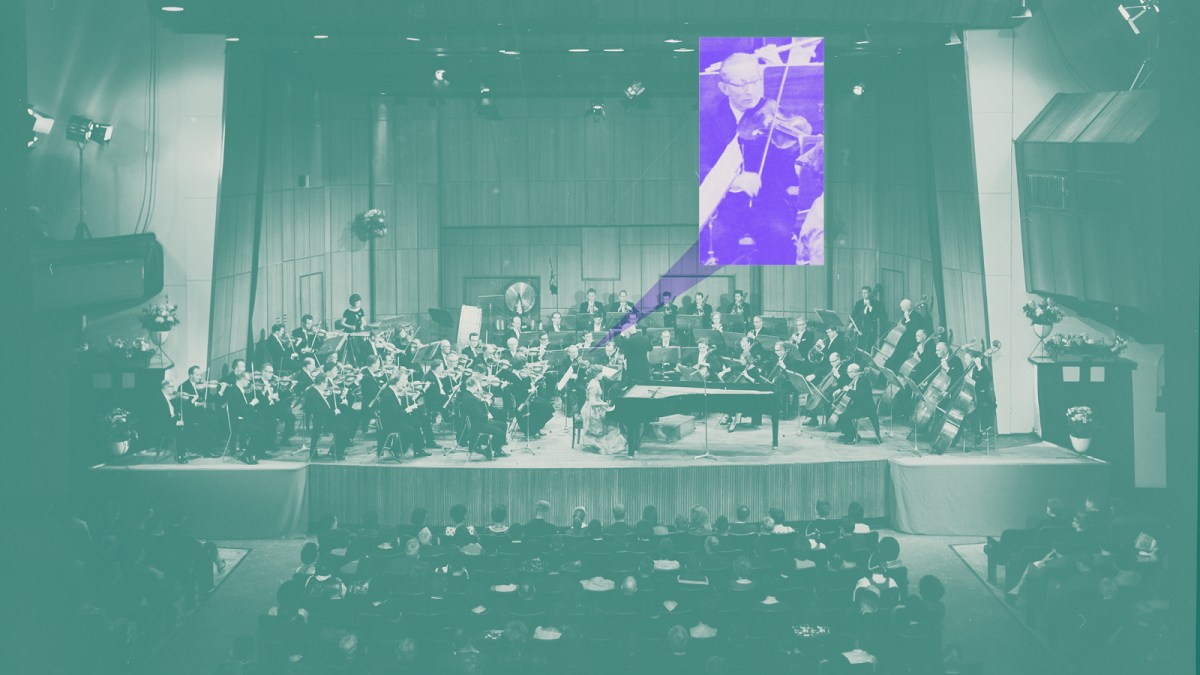In November 2021, two trumpets of the Sinfonieorchester Wuppertal in western Germany slithered up a chromatic motive at the beginning of the fourth movement—the “Tuba Mirum”—from Antonin Dvořák’s Requiem before disappearing into an unsettling augmented woodwind chord. The kind of exposed orchestral passage that only registers as difficult when someone cracks a note or the ensemble intonation buzzes uncomfortably, these two trumpets sounded crystalline and transparent, like a single instrument, in each of the motive’s three repetitions. They nailed the passage.
To the casual observer, the stakes didn’t quite seem to warrant this precision. Wuppertal is an unspectacular city of around 350,000 people in an industrial region, and its main attraction is a modest Schwebebahn, or overhead railway. Culturally, it pales compared to nearby metropolises Cologne, Dusseldorf, and Essen. The Sinfonieorchester Wuppertal is an excellent ensemble that plays in a beautiful, historical hall. (Officially, it’s an “A” orchestra, like the Berlin Philharmonic and the Staatskapelle Dresden; these rankings are based on size and pay scales.) But on this November evening the Sinfonieorchester Wuppertal was playing Dvořák’s Requiem with a local amateur choir, which sounded, well, like a local amateur choir. The concert hall, about half full, seemed to consist mainly of friends and family of the singers.
For Markus Czieharz, the 26-year-old second trumpet who was one of two players melding into Dvořák’s chromatic melody, though, the stakes of that concert—and every other concert that season with the Sinfonieorchester Wuppertal—could hardly have been higher. Czieharz was in his trial year with the orchestra, and any mistake could determine his professional future.

On June 3, 2021, Czieharz had won the audition in Wuppertal for the position of Wechseltrompette (meaning that he would be expected to play every trumpet part except principal). Orchestra auditions are incredibly grueling processes. Many fantastic players take dozens, even hundreds, before winning a spot, and it was a major accomplishment for such a young trumpet player to win this one. But the application process wasn’t over. Over a full season of concerts, Czieharz would have to prove that he had what it takes to become a full-fledged member of the Sinfonieorchester Wuppertal.
Most jobs come with probationary periods for employees, but the orchestra trial year is an unusually rigorous, fraught process. Job openings in orchestras are rare, so chances are the most recent audition winner will be the only musician on trial. The trial period lasts for at least a season, sometimes longer. Orchestras are not known for their clear human resource structures, and a trialist, as they’re sometimes called, will not receive corporate-style feedback meetings. Instead, they’ll receive hints on their musical performance and social integration in passing, on rehearsal breaks and after concerts. When the trial year is up, all their colleagues—somewhere from 70 to 100 people—vote on the trialist. Not their technique; not their musicality. Them. If they get more than half the votes, they can stay. If not, they must begin the grueling audition process again. (This is the procedure in Germany. In the United States, a smaller committee of musicians votes on the trialist.* The whole process is somewhat different in the United Kingdom; more on that later.)
I began shadowing Markus Czieharz through his trial year at the Sinfonieorchester Wuppertal in early September 2021, right when it began, and continued until May 2022. We spoke some ten times on the phone and in person, and I interviewed other members of the orchestra and musicians who have both passed and failed their trial years. As a non-musician, I wanted to understand this ritual that seemed so quintessential to classical music, with its mysterious codes, long tradition, frequent arbitrariness, and occasional cruelty.
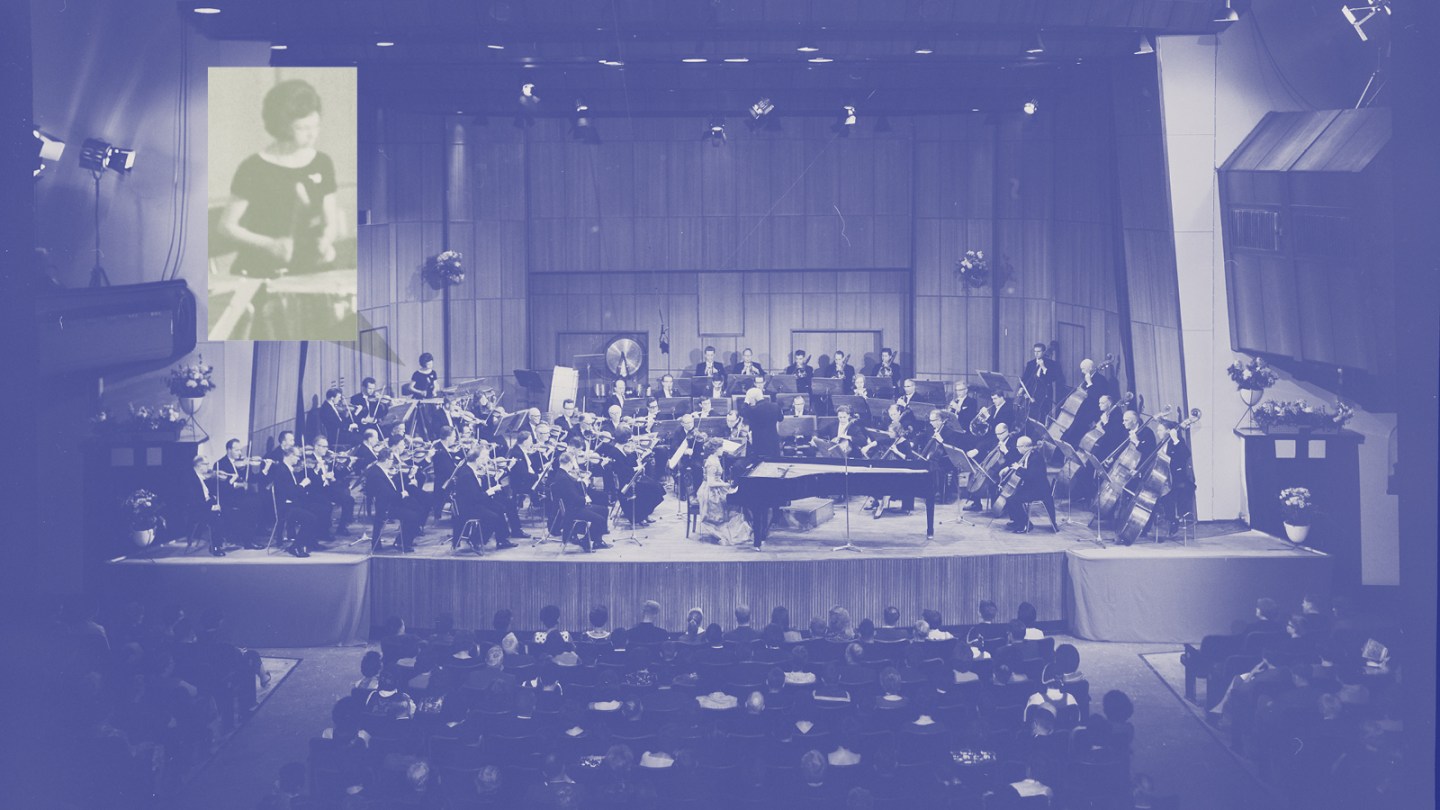
When I first began speaking with Czieharz, I was struck by his general pleasantness. He’s very polite. (Few people ask journalists how their days are going in interviews.) He’s also balanced, admitting to struggles and doubts while seeing the positive in everything. As a perpetual neurotic, I often found myself wondering how a person could be so thoroughly normal. That makes him a good fit for orchestral life, where both musical competence and good nature are prized qualities. With some exceptions, eccentric artistic geniuses rarely feel at home in orchestras.
As with many excellent musicians, there’s more than a hint of luck in Czieharz’s biography. Those without some combination of familial resources and extraordinarily talent rarely make it as far as winning a professional orchestra audition.
Czieharz’s father Siegfried was a trombonist in the Nürnberger Symphoniker. His mother, sister, and grandfather all played in the local Musikverein, of which Siegfried was the head. Czieharz started trumpet lessons with his father and hung around his orchestra rehearsals as a child, soaking up the atmosphere. “I always thought it was incredibly fascinating and exciting, the timbres, how an orchestra works,” he told me. “And that there’s tension and friction, that not everything is great all the time. But on the day of the concert it has to work.” Czieharz knew he wanted to be a professional musician by the age of 12.
When Czieharz hit puberty, he and his father started butting heads in their lessons, so the 14-year-old went on to study with one of the best trumpeters in Germany: Hannes Läubin, who plays with the Symphonieorchester des Bayerischen Rundfunks and is a professor at the conservatory in Munich. After graduating high school, Czieharz continued on to one of Germany’s leading trumpet classes, studying with Reinhold Friedrich in Karlsruhe.
In 2015, when Czieharz was 20 years old, he won an audition for the Academy of the Symphonieorchester des Bayerischen Rundfunks, where young musicians receive scholarships to play alongside professionals and hone their craft. He took time off from his undergraduate degree in Karlsruhe for the academy, playing under legendary conductors like Mariss Jansons, Herbert Blomstedt, and Riccardo Muti. “It was an incredible experience. At the time I was too young to really get everything that was happening, what the person on the podium was telling the orchestra, what kind of information he was sharing,” Czieharz recalled. It was glamorous: The orchestra toured Canada and the U.S., Czieharz playing Shostakovich Seven in Carnegie Hall.
At first, Czieharz harbored a secret hope that he would be hired on a permanent basis by orchestra, for the permanent solo trumpet post that was opening up. But in time he realized he was too young for the responsibility of such an important position. Czieharz decided to complete his studies. In 2017, he transferred to the conservatory in Hannover, where he finished his undergraduate degree and began his Master’s under the trumpeter Jeroen Berwaerts.
At the same time, Czieharz began playing professional auditions. At the age of 20, he had had a certain insouciance. As he got older, he grew more aware of the stakes, which started getting in his way. After leaving the Bayerischer Rundfunk academy, he said, “I needed another three or four years before I reached the point where I was sure of what I was doing, and knew myself well enough to win an audition.” It took Czieharz somewhere between 30 and 40 auditions—and a series of coachings with a “mental trainer” who works mostly with athletes—before he won the post in Wuppertal.
If Czieharz passed his trial year, he would never need to audition again. On September 3, 2021, he played his first concert with the Sinfonieorchester Wuppertal. The program included Richard Strauss’s blustery, brass-heavy “Alpensinfonie” and was led by Patrick Hahn, the new music director of the orchestra, who at age 26 is the youngest principal conductor of a professional orchestra in the German-speaking world. The atmosphere at the concert was celebratory: It was the ensemble’s first performance in a year and a half following COVID lockdowns. “The audience was so joyful, and the orchestra really felt like playing,” Czieharz said.
Meanwhile, Czieharz was trying to get settled in Wuppertal. Czieharz had played in various German youth orchestras, so he has friends all over the country—but in Wuppertal he didn’t know a soul. His girlfriend, an Austrian scientist, was staying in Hannover, where the two had met. The beginning of the orchestra season came with quotidian worries, which threatened to affect Czieharz’s playing at this crucial point in his trial year. (Orchestras have a way of making snap judgments.) Czieharz was still in the process of moving into his new apartment, and on the day of his first performance with the orchestra his refrigerator was delivered broken. “I didn’t have the calm I usually hope for before a concert like that,” he said. Still, he felt that the concert went well.
A few weeks and two more failed refrigerator deliveries later, Czieharz was feeling more settled. After a performance of Bruckner’s Symphony No. 5, he went out for drinks with his colleagues at an Italian restaurant named (of course) Rossini. I imagined Czieharz getting along well with his orchestra musician colleagues when he told me, of a Sciarrino opera he was scheduled to play in October, “It’s really modern. The guy who wrote it is still alive!” But it was a short and quiet evening: Most of his colleagues in the orchestra are parents and didn’t have much time to socialize after rehearsals and concerts.
Czieharz was also realizing some of the drawbacks of an orchestra that wasn’t quite of the stature of the Symphonieorchester des Bayerischen Rundfunks. After the first post-COVID concert in early September, the audience had tapered off a little. Their rehearsal space—not Wuppertal’s concert hall, the Stadthalle—was a gymnasium with the acoustic to match, in a drab area outside the city center. Still, Czieharz felt that things in the trial year itself were going well. “I think my colleagues are really happy with my performance,” he said. He added, “But there’s still a while to go. I’d rather not be too optimistic too early.”
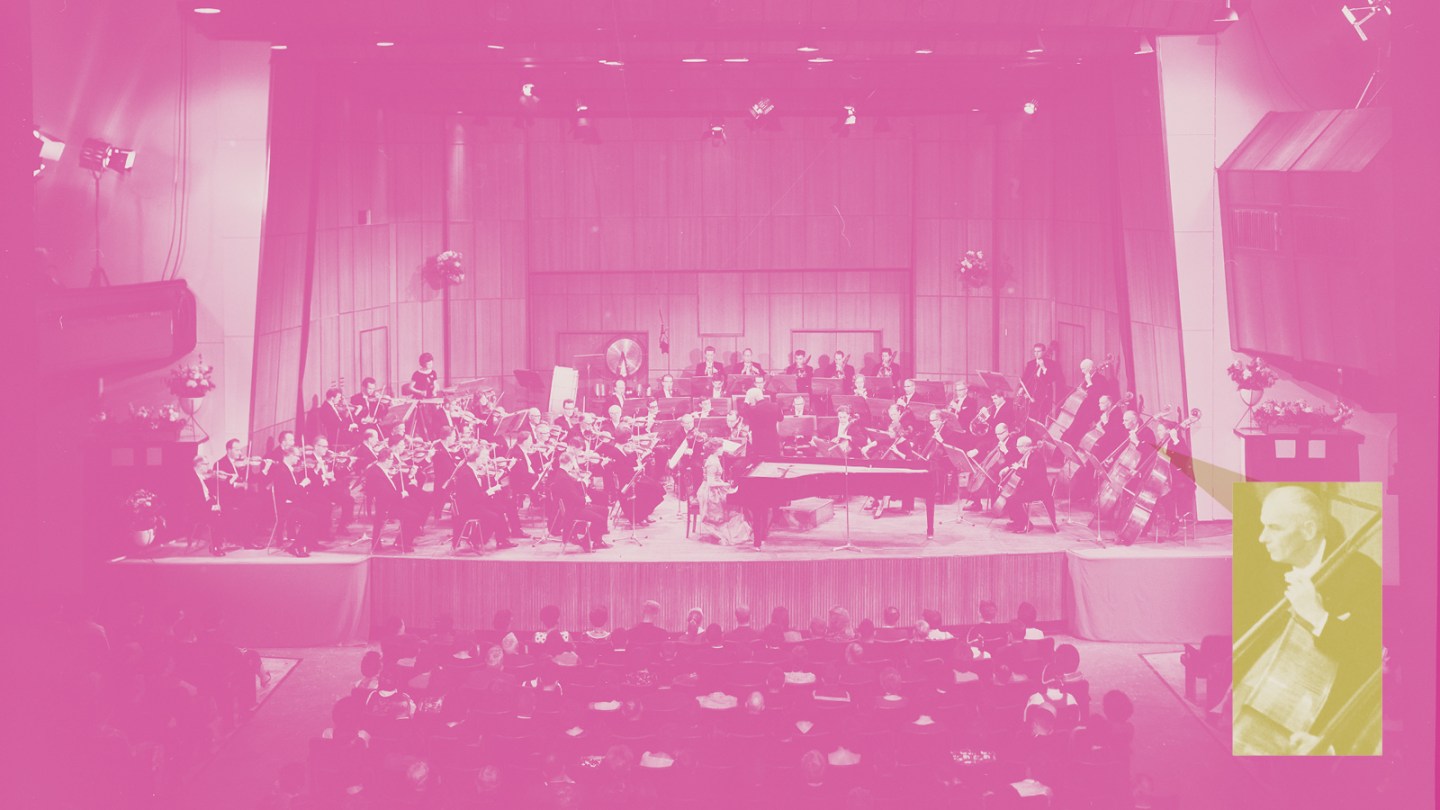
In February 2013, a young brass player whom I’ll call Joanna Meyer—she requested anonymity because she still works with some of the musicians from her trial year—won a Wechseltrompette position with the Rundfunk-Sinfonieorchester Berlin (RSB), led at the time by Vladimir Jurowski. Then a few years younger than Czieharz, she otherwise had a lot in common with him. It was the first professional audition she’d won. Joanna remembered feeling at once happy and overwhelmed when she got the job; the trial year was hardly on her radar. “I thought, ‘That’s it, you won,’” she said. “I didn’t even think so much about this whole trial thing.”
When she started the season with the RSB, in the fall of 2013, she felt comfortable in rehearsals and concerts, but shy and out of place socially. “My German wasn’t so great, and I didn’t know many people,” she said. “I didn’t know how to act, who to talk to and what about.” On her first rehearsal Jurowski tried to get her attention.
“Frau Mmm…?,” he said. “Frau Mmmmmm…?”
“He wants to know your name,” a colleague whispered.
“Joanna!” she blurted out, unaware that she was supposed to be on a last-name basis with the conductor.
The first several months of Joanna’s trial year passed by more or less without incident, though she had trouble establishing a real rhythm at the institution. A part-time hire, she usually played one week and then had the next two off. Anyway, she said, “I was still in a student mindset, that if people don’t say anything, it must mean it’s fine enough.”
The latest from VAN, delivered straight to your inbox
That changed in early January 2014. The orchestra was playing its traditional post-New Years’ Beethoven Nine, and during rehearsals the principal trumpet player took Joanna aside, releasing an outpouring of musical criticism. To the non-specialist, this feedback might seem minute: The other trumpets wanted Joanna to play louder when she had the lower octave on second trumpet, and to play on a Bb trumpet instead of a C trumpet in repertoire like Beethoven. At the high level of professional orchestra musicianship today, though, these were make-or-break factors. Joanna was taken aback; she thought things had been going well, musically at least. She set about trying to address the criticism. But she wasn’t sure if it really mattered. “I had the feeling that some people, especially in the section, just kind of decided early on that they didn’t want to play with me, and then it almost didn’t matter if I improved or not,” she said.
As the year progressed, Joanna felt increasingly isolated from the social life of the orchestra. After one concert, she was standing around with “the young people” in the ensemble, of which she was one of the youngest. The others were planning a party. “And they were talking about it, and I was there, and no one asked if I wanted to come, and I remember I was so sad,” she said. “I felt left out for sure.”
A few months passed. Joanna had taken the principal trumpet’s criticisms to heart, and became optimistic about passing her trial year again. In April 2014, the orchestra was rehearsing Strauss’s bombastic “Ein Heldenleben” when the trumpet section took Joanna aside during the break and told her that she was not going to pass her trial year. The vote was not going to be close, they added. Joanna started crying. “I was very sad and not getting it, not understanding what just happened to me,” she recalled. “I was in the corner, crying alone, and then I had to go back to the rehearsal to play ‘Heldenleben.’”
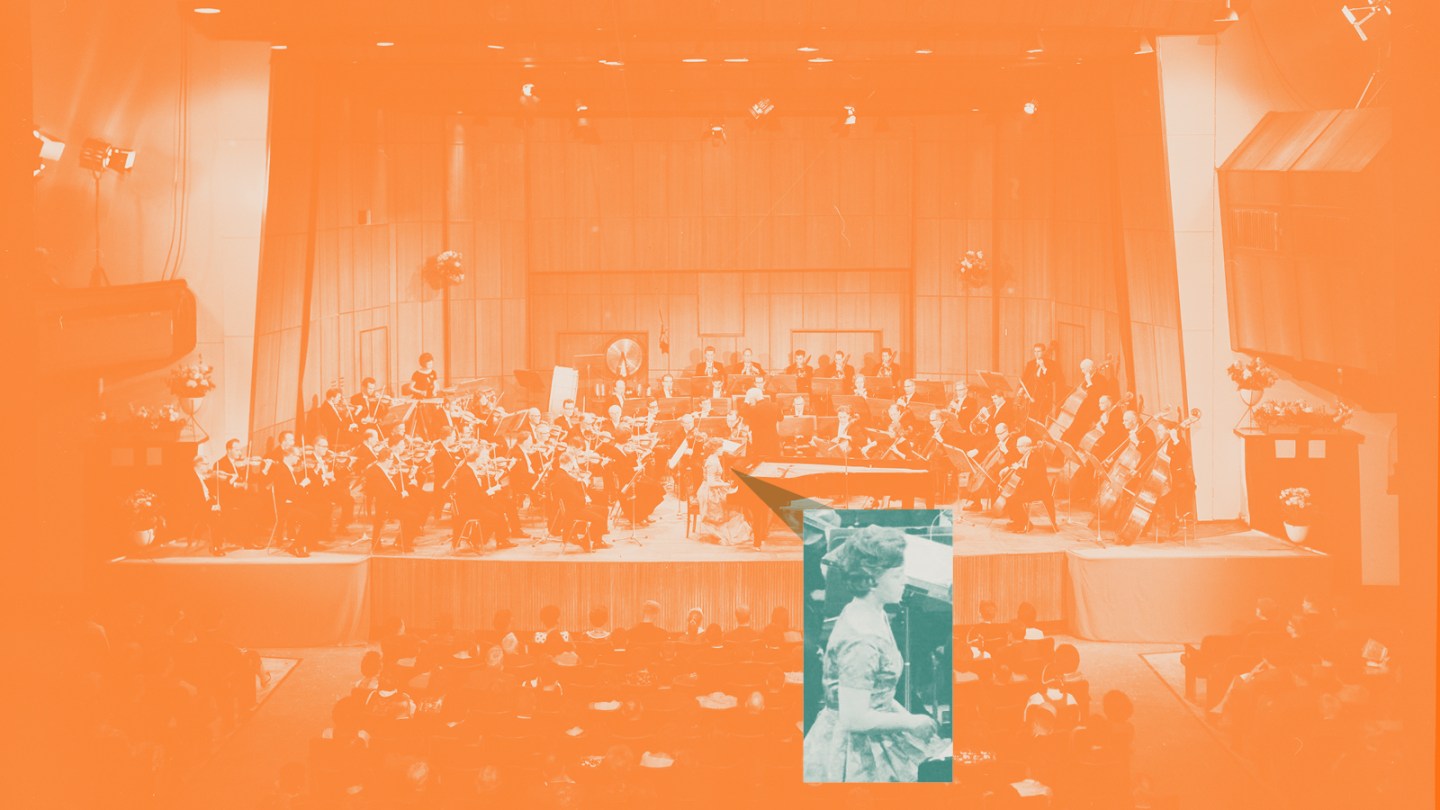
In October 2021, Czieharz traveled to Bavaria to substitute as solo trumpet with the Bamberger Symphoniker, playing works by Hugo Wolff, Gustav Mahler, and Hans Rott under music director Jakub Hrůša. Bamberg is a more prestigious orchestra than Wuppertal—Hrůša’s name is the kind that gets whispered as a dark-horse candidate for the world’s top jobs—and I asked Czieharz how the two compared. He hesitated for a moment before answering. “Well, the level of the individual players in the winds is a little higher in Bamberg than in Wuppertal,” he told me diplomatically. He added, “There were a lot of young people in Bamberg. They’d ask, ‘Hey, do you want to go have a quick beer, or go somewhere after the concert?’ I don’t have that in Wuppertal as much.” Czieharz noted that Hrůša was more tenacious in rehearsal than Patrick Hahn, the young conductor in Wuppertal, and more assertive about realizing his musical ideas. Czieharz enjoyed this rigorous rehearsal style.
In November, Czieharz had his three-month evaluation in Wuppertal. It was an opportunity for members of the trumpet section and the orchestra musicians’ board to give him feedback before the more formal mid-season evaluation, which would come with a preliminary, non-binding vote. As we walked through the empty streets of Wuppertal—it was, after all, past 10 p.m.—Czieharz told me that the evaluation had been almost completely positive. The orchestra was happy with him both personally and musically. The trumpet player who held Czieharz’s chair before dying of a heart attack had apparently been a difficult man, and so his colleagues were relieved that Czieharz was so easy to get along with.
But Czieharz had decided that he wanted to continue auditioning for other orchestras, a fact he kept between himself and the trumpets so as not to rub other members of the orchestra the wrong way. In December, he auditioned for the solo spot in Bamberg. He made it to the third round. Then, he said, “I played pretty badly. Someone else got it. It’s too bad, especially because in the first and second rounds I was the orchestra’s favorite.” It was a reminder that, although Czieharz was doing well so far in Wuppertal, the competition for any orchestral job is ferocious, and any mistake can be fatal.
Czieharz stayed in Wuppertal for the holidays; he only got to spend Christmas Eve (when Germans have their main Christmas celebrations) at home with his family near Nuremberg, and otherwise spend the rest of the period between Christmas and New Year’s working, playing seasonal pieces like Handel’s “Judas Maccabaeus” and Mozart’s “Die Zauberflöte.” These gigs meant he didn’t get to see his girlfriend, and he was still sad about not winning the audition in Bamberg, since the orchestra seemed so attractive to him when he subbed there. This result “was fine for me on a superficial level, but apparently my subconscious needed more time with it,” he said, adding, “That’s auditions for you: Sometimes you get lucky, other times you don’t.”
As 2021 bled into 2022, it seemed that the Sinfonieorchester Wuppertal’s hopes for Czieharz and his personal ambitions were diverging. His mid-season evaluation took place in March 2022. Personally, it was a hard time for Czieharz: His grandfather was dying. But at least he got good news from the orchestra. The preliminary, non-binding vote had been massively in his favor, with everyone voting for him except for two people who recused themselves. In the same period, Czieharz auditioned for the NDR Radiophilharmonie in Hannover, which would have given him the chance to move back to where his girlfriend lived. He made it to the second round, but was unhappy with his playing in the third and didn’t progress. (He was supposed to play another audition that month, for the Orchester des Hessischen Rundfunks in Frankfurt, but had to cancel because he tested positive for COVID.)
In March, I asked Czieharz if he could imagine staying in Wuppertal long-term. “Tough question. Basically, I think so,” he answered. “I mean, the orchestra is good and my colleagues are nice, so the working conditions are excellent. And the city: It has some nice spots if you know where to look. But I’ll keep playing auditions.” Then I asked him an embarrassing question: Was it possible that he was too good for the Sinfonieorchester Wuppertal? Czieharz found some modest words, but admitted he would like to be the solo trumpet in a more famous orchestra someday.
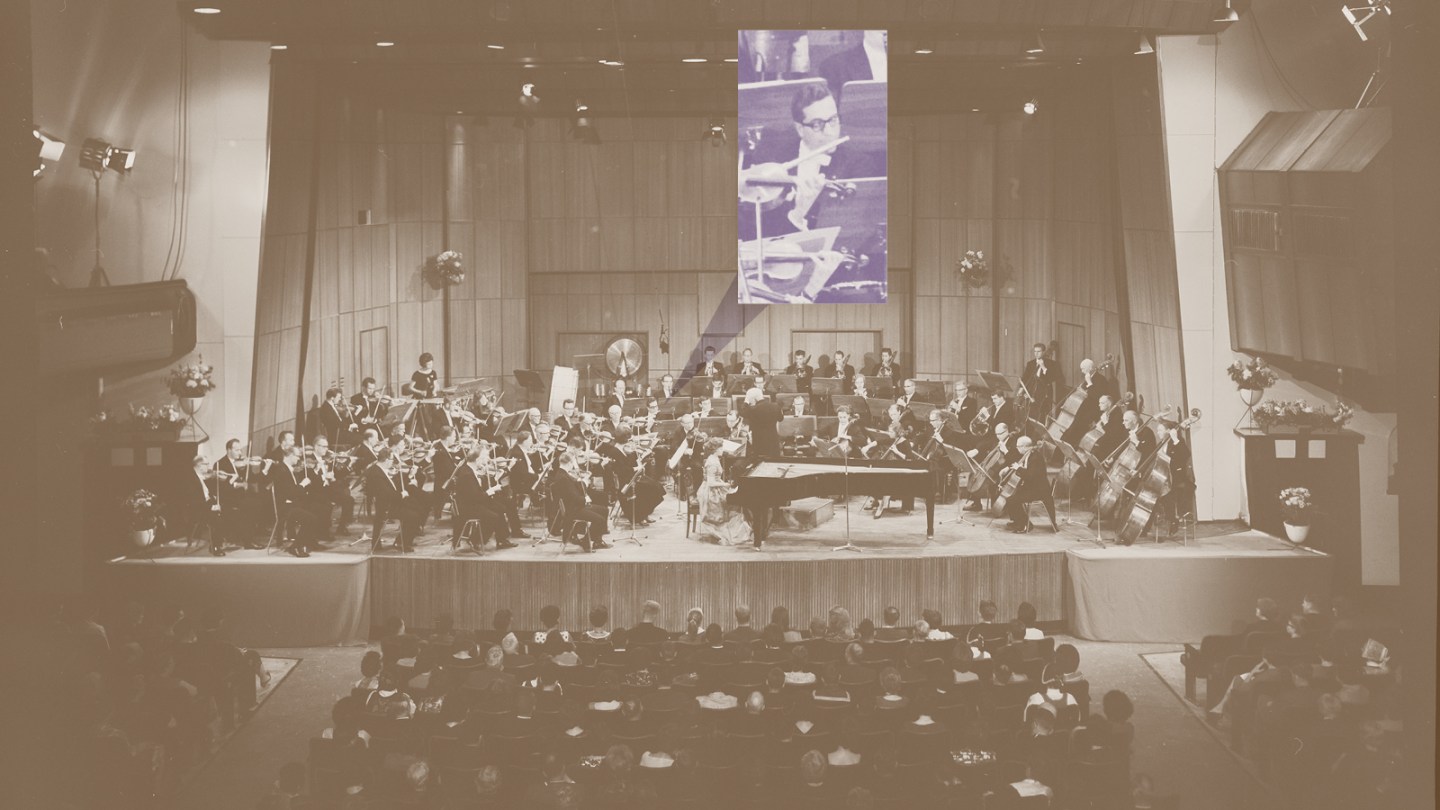
By the spring of 2022, the only person with a shadow of doubt that Czieharz was going to pass his trial year in Wuppertal was probably Czieharz himself. But this was unusual. Orchestra trial years rarely offer the kind of formalized structures for feedback common in non-artistic jobs. Instead, trialists are given hints about their progress during rehearsal breaks, backstage, and in the closest bar. This at least elides the bureaucratic tedium of corporate performance reviews, but can leave young and inexperienced musicians trying to read their coworkers’ remarks and social cues like tea leaves. In a 2016 piece for Boston Magazine, one Boston Symphony Orchestra said of a percussionist who failed his trial year, “No one really knew what to tell him. Instinctually, it just wasn’t quite there.” Joanna wishes she got more explicit feedback about her performance with the RSB. “I think it’s normal that at first you just want to hear the person play, and see how they act and how it goes, but it would be nice that if a few things don’t work, not to just give up and be like, ‘OK, no,’” she told me. “Give them a chance to correct things.”
These informal structures also allow implicit biases to flourish. Outright racism, homophobia, sexism, and transphobia are becoming rarer, but what Joanna calls the “unwritten rules and small weird orchestra things” that can determine a trialist’s success often hinge on long familiarity with the classical music world, a familiarity inextricable from socioeconomic advantages. Eric Lamb, a flutist and professor at the Academy of Music and Performing Arts in Vienna, told me that if the musician on trial is “a foreigner or a person of color coming into an institution that is primarily white and European between the ages of 35 and 65, then they are an outlier. They’re expected to behave in a way in which they fit into the community so that the orchestra feels comfortable, not that they feel comfortable.”
In the U.S. and Germany, the player who wins the audition then sits for their trial year alone, tasked with finding their place in the complicated, preexisting interpersonal and musical dynamic of an orchestra. In the UK, orchestras bring in the top players from the audition, as well as musicians with whom they’ve worked before, for rotating trial periods. For conductor Kenneth Woods, who works in both the U.S. and the UK, the latter system is clearly preferable. In the U.S. system, “You’re the only one, and you feel like you have to not rub anyone the wrong way for a whole year,” Woods said. “The pressure is all-consuming.” In the UK, orchestras are less rigid, with freelancers cycling in and out, meaning that a trialist faces less pressure as they try to adapt to the group. But the UK system has its cruelties, too. “There have been instances at all the British orchestras where you’re aware that a job has stayed open and a trial has dragged on for a really, really long time, and that can be emotionally draining for the players who are involved,” Woods told me. He described an instance where a trialist seemed poised to join an orchestra before COVID, only to come back from the break to realize that five new musicians were on trial. The UK system “becomes a bit of a popularity contest,” Lamb said.
Still, the trial year may be the best worst system that orchestras have. The stakes of an indifferent or complacent player becoming tenured at an orchestra are high, affecting the entire ensemble’s performance; two people who simply don’t get along, musically or personally or both, can end up sitting next to each other for decades. “Honestly, I don’t think it’s a good system, but I can’t think of another system that would be so much better,” Joanna said. For Czieharz, the problem with the trial year is not the process itself, but the taboo that surrounds not passing it. “In general, I think it’s a good idea to spend a year seeing if things work out with your colleagues,” Cziehard said. “But if you don’t pass, that you get branded: ‘Oh, he didn’t pass his trial year, what a loser.’ That’s terrible,” he said. “It can happen to anyone, and doesn’t necessarily say anything about your musical ability.”
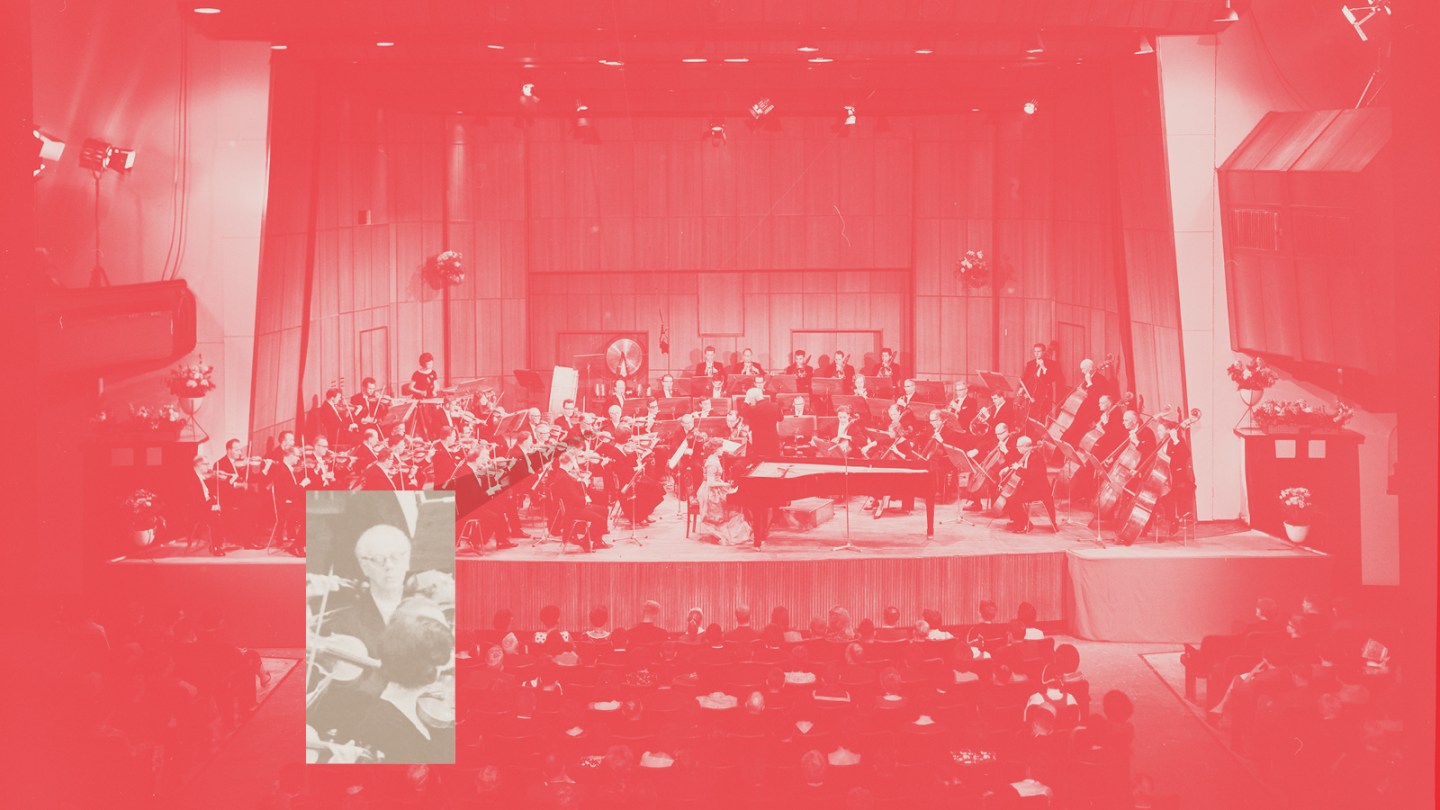
On April 24, 2022, Czieharz finally got the result that by now everyone was expecting. He passed his trial year with 72 yeses and a single reclusion. The orchestra board made the announcement during the break of a concert, welcomed him to the orchestra, and “then there were a lot of hugs and many kind works,” Czieharz laughed. The musicians went to Rossini’s for drinks. It was a Sunday night, so many of Czieharz’s colleagues had to leave early, as did his girlfriend, but he continued drinking until 1 a.m. with a friend. Later, I asked Cyrill Sandoz, the principal trumpet of the Sinfonieorchester Wuppertal, if he noticed anything different about Czieharz on that evening; to me, the young musician seemed on a perpetually even keel. “Yes, when you sit a few feet away from someone for a long time, you do notice everything, or most things,” Sandoz said. “Although he got through the trial year with relative ease, I definitely noticed his relief when the vote was over.”
Both Sandoz and Patrick Hahn, the music director in Wuppertal, are aware that Czieharz still has his eye on a solo position with a more prestigious orchestra. “There are bigger and better orchestras out there, that’s obvious, and we know it,” Sandoz laughed. Hahn told me, “When young musicians are so talented and play so well, it’s expected that they keep looking and put out their feelers. It would be a shame for us to lose him, but it’s important for him to stay active.” In the 2022-23 season, Czieharz will fill in for a colleague on sabbatical and play assistant principal trumpet in Wuppertal. Since passing his trial year, he’s also auditioned for the Deutsches Symphonie-Orchester Berlin and the opera houses in Hamburg and Stuttgart. In the latter, he was among the final three, but didn’t end up winning. “We’ll see where the path leads,” he said.
In 2018, Joanna Meyer won the audition for second trumpet with the Staatskapelle Berlin under Daniel Barenboim. This time her German was fluent and she was more confident socially, and she had figured out an essential trial-year tradition: to always say “hi” to everyone from the orchestra. In the meantime she got her master’s, and spent a year on contract with another German opera orchestra. Toward the end of the season, in May 2019, Barenboim took her aside and offered her valuable tidbits of constructive criticism.
The date of the vote on Joanna’s trial year, scheduled for June 2019, drew closer. She got nervous, thinking about it constantly.
But this time she passed overwhelmingly; as with Czieharz, only a single person didn’t vote for her to join the orchestra permanently. I asked her what was different about the trial year process between her previous orchestra, the Rundfunk Sinfonieorchester Berlin, and the orchestra that is now her home. “The thing that was most different was actually me,” she said.
When Joanna got the news, she gathered a large group of people and went to an Indian chain restaurant in Berlin’s Potsdamer Platz. It was the only place she could think of that had enough space for all of her friends. I remember watching her eating, drinking, talking and laughing. She was carefree. She had found her place. ¶
*Correction, 7/18/2022: The original version of this article stated that American orchestras vote on their trialists like German orchestras. In fact, in American orchestras, committees made up of other players vote on their trialists. VAN regrets the error.
Subscribers keep VAN running!
VAN is proud to be an independent classical music magazine thanks to our subscribers. For just over 10 cents a day, you can enjoy unlimited access to over 875 articles in our archives—and get new ones delivered straight to your inbox each week.
Not ready to commit to a full year?
You can test-drive VAN for one month for the price of a coffee.

